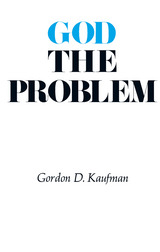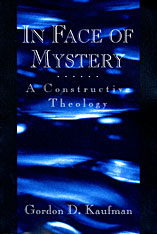
The most discussed and most significant issue on the religious scene today is whether it is possible, or even desirable, to believe in God. Mr. Kaufman's valuable study does not offer a doctrine of God, but instead explores why God is a problem for many moderns, the dimensions of that problem, and the inner logic of the notion of God as it has developed in Western culture.
His object is to determine the function or significance of talk about God: how the concept of God is generated in human experience; the special problems in turn generated by this concept (for example, the intelligibility of the idea of transcendence, the problem of theodicy) and how they are met; and under what circumstances the idea of God is credible or important or even indispensable. He does not try to prove God's existence or nonexistence, but elucidates what the concept of God means and the important human needs it fulfills.
Four of the eleven essays have been previously published, at least in part; seven are completely new.

In the symbolic world of Christianity, which millions have inhabited for centuries, is there room for modern and postmodern life—for today’s real world of cultural relativism and religious pluralism, of scientific knowledge and historical understanding? In Face of Mystery draws these two worlds together in a full-scale reconception of Christian theology.
Theology, Gordon Kaufman suggests, is an imaginative construction, the creation of a symbolic world for ordering life. As it has been constructed, so it can be reconstructed, and Kaufman does so in a way that clarifies both the historic roots and the present-day applications of Christian symbolism. He works with a “biohistorical” interpretation of human life, one that portrays humanity as a product of biological evolution and historical development. While taking account of cultural and religious pluralism, and while providing criteria for making comparative assessments and judgments, this interpretation of human historical existence also situates human beings—with their capacities for freedom and creativity—within the ecological wed that sustains all life. Human beings, Kaufman argues, have created religious symbolism as a necessary part of their attempt to orient themselves in the world. He shows how Christianity, as a system of symbols, has figured in this effort, and he carefully examines the separate elements of the Christian perspective—foremost among them, God. How does the concept of God, as an ultimate point of reference, enhance our understanding of today’s world; and how does the symbol “Christ” qualify this concept? The answers Kaufman proposes clarify the changing relevance of the symbolic world of Christianity.
Firmly embedded in physical and social science and in the tradition of American pragmatism, this thorough reconception of a Christian worldview offers insight into the most basic questions confronting humanity today—questions of value, meaning, and self-identity.
READERS
Browse our collection.
PUBLISHERS
See BiblioVault's publisher services.
STUDENT SERVICES
Files for college accessibility offices.
UChicago Accessibility Resources
home | accessibility | search | about | contact us
BiblioVault ® 2001 - 2024
The University of Chicago Press









